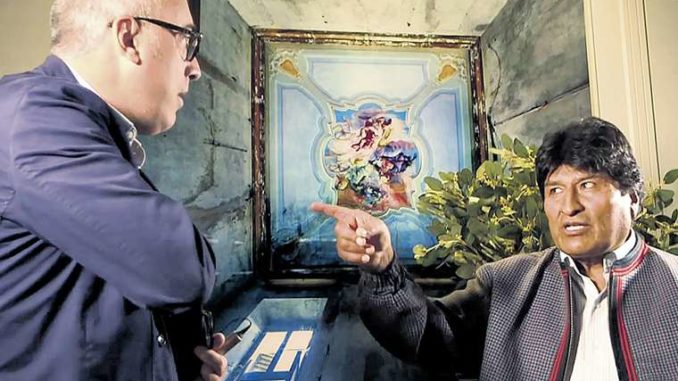
Published in El Pais, November 19th 2019.
On November 16, Gerardo Lissardy of BBC Mundo conducted an interview with Evo Morales. I want to highlight the aspects that most caught my attention:
- He does not recognize any errors in your government. To the question whether his government made any error he states that no, perhaps the only time was when he tried to remove the fuel subsidy. He does not recognize another error, but many conflicts and social claims come to my memory. For Evo, the referendum was respected because the Constitution was not changed, and the Constitutional Court interpreted for respecting existing human rights. He does not recognize fraud and insists that he won in the first round and expressing that if there was any fraud it was done only by the people of the TSE. For him it is clear that the strongest convulsions began with his social movements on his departure out of the country and he believes that he still is the President until the Assembly accepts his resignation, without acknowledging that this acephaly damaged economic and political social stability.
- He always talks about two groups, those of the empire and the social movements. He does not see Bolivia as one and does not govern for all, he only benefits some. Evo and Linera’s speech has been that those who did not vote for them would not receive resources to develop their city as punishment. The facts showed that the law only applied to the people of the opposition. This continuous polarization was undermining democracy and generating greater discontent in the power groups and the entrepreneurial classes (clarifying that 75% of the companies in Bolivia is between micro, small and medium enterprises). For Evo, there is not one Bolivia, but the right-wing groups must continue to be fought. He wishes to return to Bolivia to continue fighting and the words of struggle continue to emerge in his vocabulary. For example, he indicates that only he can stop social protests and that they will not stop until the installed dictatorship is ended.
- He defends his position and is not open to dialogue on topics that he does not like. He shows arrogance when questioned about aspects he doesn’t like. He evades to respond, changes the subject, calls the interviewer defender of the right and threatens him. This reaction was continued and copied by authorities of his party in Bolivia with media or critics, undermining freedoms of press and expression at different levels. He always evaded debates with others in Bolivia indicating that no person in history had a successful economic model like his government. He ruled with so much political personalism that he believes that the country will not achieve peace without his presence. This is when you see the failure of a leadership based on personalism and not a true organizational structure, since the participation of their own comrades was eroded without that they – by themselves – can give continuity to this development philosophy.



Be the first to comment